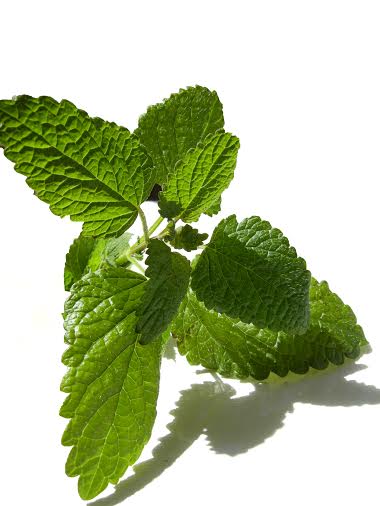
Lemon Balm Relaxation and Sleep
Taken as a tea, and as a herbal medicine which delivers higher doses, Lemon Balm has a relaxing effect on the body [1]. The calming effects [1] are helpful at any time of day, and it is also used to help have a restful sleep [2].
Traditional uses and Recent Research
This healing herb has traditionally been used to strengthen the nervous system, improve digestion and boost immunity. Recent studies show it can also have an effect on improving concentration and memory [1].
The scientific studies of Lemon Balm have shown it to be effective in relieving anxiety [3], fighting infections and improving the immune system. Lemon balm can help combat viral infections such as cold sores [4, 5], and is being explored to find ways it may help to combat viruses involved in AIDS [5].
Antioxidants in Lemon Balm
High in antioxidants, Lemon Balm is protective to cells in the body, boosting immunity and helping prevent both acute and chronic disease [6, 7, 8].
Herbal medicines typically have many uses
Unlike pharmaceutical medicines which tend to target specific symptoms or parts of the body; herbal medicines typically have many uses, so improve many aspects of health.
Vitamins and minerals work differently to herbal medicine
Vitamins and minerals work differently to herbal medicine, although are similar in that they also are used to help many different problems. For example, Vitamin C, Zinc and the B vitamins, like lemon Balm all support immunity, relieve stress, assist in relaxation and support the nervous system. In addition, all have many other roles in the body.
I recommend the Entire Katoa Food State supplements for the best absorption and availability for use by your body.
Contact Bay Health Clinic to find out more about herbal medicine, or to book your naturopathic consultation; phone: 07 571 3226 or email: ask@bayhealth.nz
Alternatively to find out more about other topics click the drop down buttons on the right.
Jaine Kirtley Reg. Naturopath, Reg. Nurse, Nutritionist.
References
1. Kennedy DO, Scholey AB, Tildesley NTJ, Perry EK, Wesnes KA: Modulation of mood and cognitive performance following acute administration of Melissa officinalis (lemon balm). Pharmacology Biochemistry and Behavior 2002, 72:953-964. https://www.ncbi.nlm.nih.gov/pubmed/12062586
2. Cerny A, Schmid K: Tolerability and efficacy of valerian/lemon balm in healthy volunteers (a double-blind, placebo-controlled, multicentre study). Fitoterapia 1999, 70:221-228. http://www.sciencedirect.com/science/article/pii/S0367326X99000180
3. Sarris J, McIntyre E, Camfield D: Plant-Based Medicines for Anxiety Disorders, Part 2: A Review of Clinical Studies with Supporting Preclinical Evidence. CNS Drugs 2013, 27:301-319. https://www.ncbi.nlm.nih.gov/pubmed/23653088
4. Wölbling RH, Leonhardt K: Local therapy of herpes simplex with dried extract from Melissa officinalis. Phytomedicine 1994, 1:25-31. https://www.ncbi.nlm.nih.gov/pubmed/23195812
5. Geuenich S, Goffinet C, Venzke S, Nolkemper S, Baumann I, Plinkert P, Reichling J, Keppler O: Aqueous extracts from peppermint, sage and lemon balm leaves display potent anti-HIV-1 activity by increasing the virion density. Retrovirology 2008, 5:27. https://www.ncbi.nlm.nih.gov/pubmed/18355409
6. Herodež ŠS, Hadolin M, Škerget M, Knez Ž: Solvent extraction study of antioxidants from Balm (Melissa officinalis L.) leaves. Food Chemistry 2003, 80:275-282. http://www.sciencedirect.com/science/article/pii/S0308814602003825
7. Ribeiro MA, Bernardo-Gil MG, Esqui´vel MM: Melissa officinalis, L.: study of antioxidant activity in supercritical residues. The Journal of Supercritical Fluids 2001, 21:51-60. http://www.sciencedirect.com/science/article/pii/S089684460100078X
8. Encalada M, Hoyos K, Rehecho S, Berasategi I, Ciriano M-Í, Ansorena D, Astiasarán I, Navarro-Blasco Í, Cavero R, Calvo M: Anti-proliferative Effect of Melissa officinalis on Human Colon Cancer Cell Line. Plant Foods for Human Nutrition 2011, 66:328-334. https://www.ncbi.nlm.nih.gov/pubmed/21964875
FIND OUT MORE ABOUT...